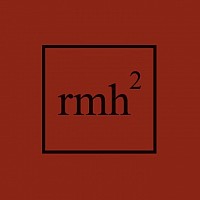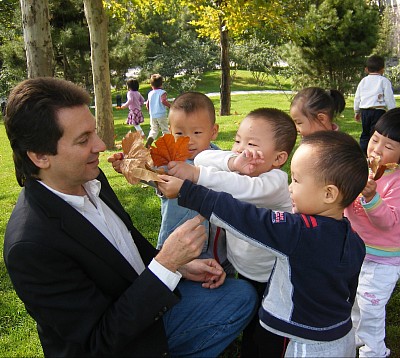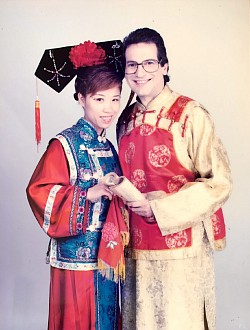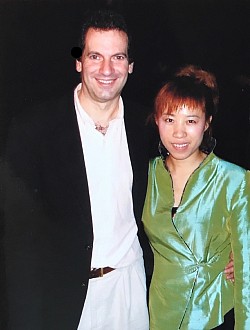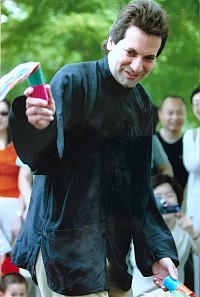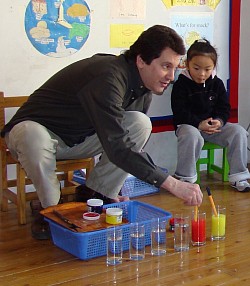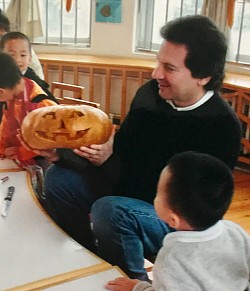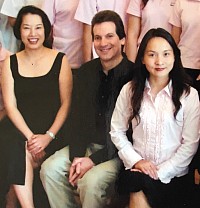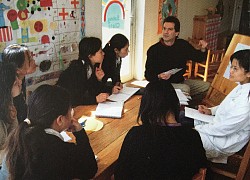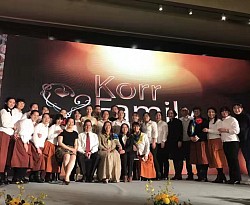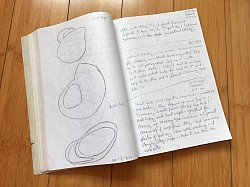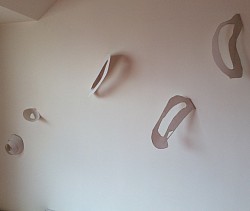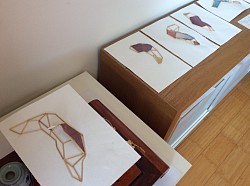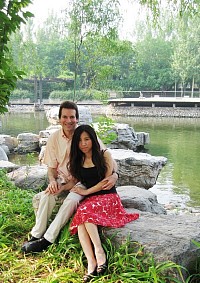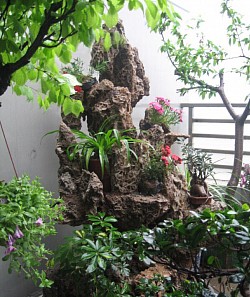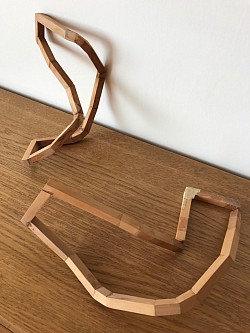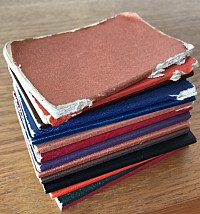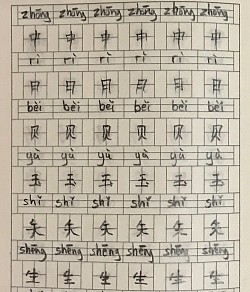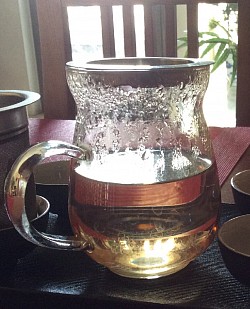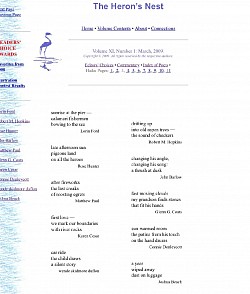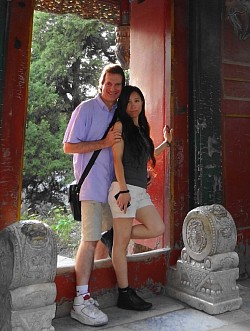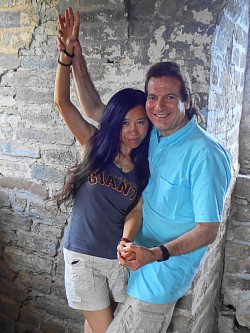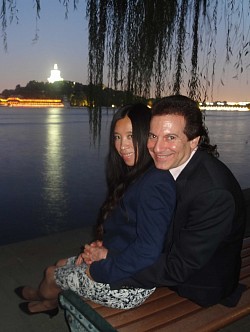Timeline II
"A Journey of Self Discovery”
Life in Beijing: 2004 - Present
Hopkins met his future wife while traveling in Beijing during the summer of 2004. Shortly after returning to China in the Fall, he began teaching English at a private international preschool on the eastern outskirts of Beijing.
Unforeseeably at the time, Hopkins was embarking on a journey of self-discovery while adapting to a new culture, language, and work experience. He never imagined that his teaching job would turn into a career.
The change of scenery was liberating for Hopkins after living in the warehouse district of downtown LA for over a decade. He also felt released from the driving rigors of a "freeway flier" while working and teaching in Southern California. Now he enjoys the daily benefits of walking and using Beijing's public transit, which also includes public bicycles!
As a foreign English Teacher, Hopkins quickly discovered that preschool teaching was tapping into his creative abilities as an artist. He also discovered an intuitive ability for communicating with children. Over time, Hopkins began to develop a personal style of "creative playfulness" in his teaching approach that combined elements of creativity with the natural sense of play that children use in their learning development.
This had a profound influence on Hopkins, as he himself was adapting to a new life and culture. Indeed, the newness of his surroundings resonated not only with his artistic sensibilities, but also his romantic reasons for coming to China. For Hopkins, this "creative rebirth" felt emotionally receptive in a preschool environment, and, all the more so, by a "virtue-based" approach to education that was spiritually conducive for both teachers and children.
Among the healthy side-effects of Hopkins's "creative playfulness", was the creation of original chants and finger plays which he hopes to publish in a book form for teaching preschool English in China.
The International Preschool of Cannes (IPOC) opened its doors in 2003, with a mission of introducing Western approaches to Chinese education, as well as applying a "virtue-based" approach to the classroom and teacher training.
When Pamela Yang, the preschool director, first hired Hopkins, she described his job as being "part science and part art". Hopkins took this characterization to heart and, indeed, regarded the classroom as a laboratory -- especially when he was first starting out and learning on a daily basis. Eventually, the trial and error approach of Hopkins as "scientist" came to alternate with that of Hopkins as "artist" -- a familiar mindset that transformed the classroom into a virtual studio.
In the Spring of 2006, Hopkins and his wife bought a new apartment in Dong Yi Shi Qu, not far from his work. It provided Hopkins with a suitable studio space, and a roof-top patio for a potted garden and artificial mountain. Hopkins dedicated much time in designing the patio layout for potted plants, and furnishing plants that could withstand the harsh north wind.
As Hopkins was immersing himself in a new life and culture, his artwork was likewise simmering in the studio by way of his sketchbooks, artworks in progress, and wall-installation ideas. The "lived"
experiences of his cultural interactions were slowly absorbing into his work. This integration between life and art also extended into his living environment.
In designing their home's interior, Hopkins and his wife created a "garden theme" that symbolized their marriage between east and west, traditional and modern, and highlighted by generouswindows and spacious views.
In Beijing, Hopkins continued to read and write haiku; having published his first haiku in The Heron's Nest in 2009, and his first tanka in American Tanka in 2010. He also began exploring haibun writing in 2012. Ultimately, Hopkins is drawn to the concise, yet contemplative nature of haiku and tanka.
Another ongoing project is Hopkins's self-study of Chinese through the use of textbooks, apps, and everyday conversations with friends and colleagues. (Hopkins had always admired the gestural quality of Chinese characters.)
Chinese tea culture is also an important part of Hopkins's life, as he enjoys drinking green tea and pu'er tea daily, and chrysanthemum tea during cold season. He and his wife both follow the "preventive medicine" approach of Traditional Chinese Medicine, along with healthy diet and lifestyle routines.
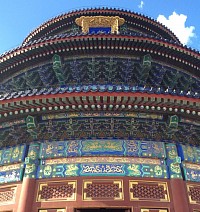
"The Temple of Heaven", 2015. An imperial structure built in 1530, constructed entirely of dove-tailed joinery, without any use of nails.
Hopkins is captivated by Beijing's cultural legacy and it's many scenic spots. With Beijing having the worlds five largest Heritage Sites, Hopkins is particularly fond of the Temple of Heaven, a 16th century structure
built completely of dove-tailed wood, without the use of any nails. (Hopkins and his wife were formerly engaged at the Circular Mount Altar in 2005.)
Hopkins is also enamored with Beijing's many trees, especially it's willows, aspens and poplars that shade the city's streets and many public parks. Hopkins has a special affinity for poplar trees — his wood of choice for making his Circadian Loops series of wall sculptures. Elm trees are also a highlight of their patio garden, having adapted very well as potted trees.
Ultimately, Hopkins regards Beijing as a great international city with many things to discover: from its traditional hutongs to it's modern architecture, and, most importantly, it's welcoming spirit towards foreigners.
